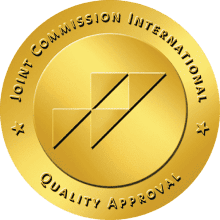Cocaine Abuse: Cocaine Addiction Treatment

What is Cocaine?
Cocaine is a potent stimulant drug that’s derived from the coca plant native to South America. In its pure form, it appears as a white, flaky powder. In the 1800s, it found its way into the U.S. medical field, where it was utilized as a local anesthetic and, over time, a treatment for depression. By the 19th century, the illicit drug was being exploited as a stimulant that induced euphoria, allowing users to revel throughout the night. Recognizing its high potential for misuse and associated health hazards, the U.S. Drug Enforcement Administration, in 1970, classified cocaine as a Schedule II drug under the Controlled Substances Act. This categorization made possession of the drug a serious criminal offense.
Cocaine is commonly referred to by different street names/nicknames, such as:
- Coke
- C
- Blow
- Snow
- Flake
- Nose candy
- Powder
What is Crack?
When transformed into rock crystals, cocaine becomes what is known as crack cocaine, often referred to as “crack” or “rock.” This drug is a less expensive alternative to powder cocaine and is capable of vaporizing at smoking temperatures (the name “crack” derives from the crackling noise it produces upon heating).
Crack is typically smoked using a pipe, or it can be sprinkled on tobacco or marijuana and smoked in a similar fashion to a cigarette. Within seconds of inhalation, it enters the bloodstream through the lungs and reaches the brain. This instantaneously induces a powerful sense of euphoria, but the effects diminish within a short period of 5 to 10 minutes. As a result, individuals often seek to sustain the high by consuming more of the drug, which can lead to addiction in a rather short time frame.
How is Cocaine Used?
Cocaine has three main forms: cocaine hydrochloride, which is a white crystalline powder often combined with other substances; freebase, a pure version without the hydrochloride additive; and crack cocaine, comprising white or pinkish crystals derived from the powder using heat and baking soda. The powdered form is commonly snorted through the nose, but it can also be rubbed onto the gums, swallowed, or dissolved in liquid and injected directly into the bloodstream. Freebase and crack are usually smoked.
What Are the Physical and Psychological Effects of Cocaine Use?
Cocaine affects the central nervous system, leading to significant physiological and psychological effects. Physical side effects commonly associated with cocaine use include:
- Excessive sweating
- Nausea
- Dizziness
- Changes in heart rhythm
- Rapid breathing
- Fluctuations in body temperature
- Muscle weakness/muscle twitches
The psychological effects of cocaine can also differ among individuals. While some people addicted to cocaine may experience increased energy, alertness, and talkativeness, others may feel anxious and on edge. The onset of the cocaine high is typically rapid, lasting between 15 to 30 minutes. However, once the high subsides, individuals often experience a “crash” characterized by feelings of depression, suicidal thoughts, anxiety, paranoia, or even psychosis. These intense emotions can trigger strong cravings for more cocaine.
With prolonged use, people addicted to cocaine may develop tolerance to the drug’s effects, making them need higher doses of the drug to achieve the same level of euphoria or temporarily decrease feelings of withdrawal. This can lead a person addicted to engaging in bingeing behavior. Bingeing involves consuming larger and more frequent doses of cocaine in an attempt to maintain the desired high, which can persist for hours or even days. This dangerous cycle of escalating drug use exemplifies the grip of addiction.
It is crucial to recognize that the physical and psychological effects of cocaine use can have detrimental consequences on individuals’ well-being. Seeking professional help and support at a drug rehab is essential for breaking free from the vicious cycle of addiction and working towards a healthier and more fulfilling life.
Get Answers to Your Questions Now
Are you looking for information on addiction treatment options, or just need someone to talk to? We are here to help. The treatment specialists at Hillside Detox are available 24/7 to offer support, resources, and care for you or your loved one.
Is Cocaine Addictive?
Cocaine, as a serotonin/norepinephrine/dopamine reuptake inhibitor, stimulates the release of “feel-good” chemicals in the brain. However, prolonged use of cocaine can lead to desensitization of brain receptors to the dopamine rush it produces.
According to the National Institute on Drug Abuse, repeated use of cocaine leads to long-term changes in the brain’s reward system and other related systems. This increases the risk of addiction. Over time, the brain becomes less responsive to the excess dopamine caused by cocaine, which means individuals need stronger and more frequent doses to experience the initial high and relieve withdrawal symptoms. This adaptation in the brain’s response contributes to the cycle of dependence and highlights the need for comprehensive intervention and support to address cocaine addiction.
Identifying a cocaine addiction can be challenging, as individuals may overlook the consequences while craving the drug. Psychological addiction presents a significant hurdle to overcome, although there are also evident physical signs of addiction. Frequent cocaine users develop a dependence, relying on the drug to maintain a sense of normalcy. With dependence comes tolerance, requiring larger amounts of cocaine to produce the desired effects. Upon discontinuation, withdrawal symptoms emerge.
Escaping a cocaine addiction can prove immensely difficult. The drug disrupts the brain’s reward system by artificially elevating dopamine levels, ultimately rewiring its functioning. Breaking free from the grip of cocaine addiction requires comprehensive support and professional intervention.
What are Common Signs of Cocaine Abuse and Addiction?
Common signs of cocaine abuse and addiction include the presence of drug paraphernalia, such as needles, pipes, spoons, small plastic bags, and razor blades. Rolled-up dollar bills used for snorting cocaine and white residue on surfaces like mirrors, magazines, or books can also be indicators.
Physical signs of cocaine addiction may include:
- White powdery residue around the nose (known as “sugar spots”)
- Dilated pupils sensitive to light (often leading to wearing sunglasses even indoors)
- Bloodshot or watery eyes
- Needle marks on hands, forearms, legs, or feet
- Rapid breathing
- Constant runny nose or frequent sniffling
- Chronic nosebleeds
- Sores in the nose
- Frequent sore throats
- Shaking hands
- Decreased appetite or weight loss
- Restlessness
- Congestion
- Fever
- Headaches
Behavioral signs to look out for include:
- Excessive talkativeness
- Paranoia or anxiety
- Mood swings and irritability
- Aggressive behavior
- Declining performance at work or school
- Decrease in hygiene or personal grooming habits
- Inability to go without cocaine for more than a few hours
- Declining interest in activities once enjoyed
Long-term cocaine use can have negative effects on mental health and psychological well-being. Behavioral changes may include extreme mood swings, ranging from feeling euphoric and grandiose to becoming hostile and isolated. Financial difficulties due to drug purchases or work-related issues can arise, and individuals may experience mental health issues such as depression, paranoia, or anxiety even when not under the influence.
Many people struggling with cocaine addiction can benefit from integrated treatment that addresses both substance use and co-occurring mental health disorders. For some individuals, the pursuit of the next high becomes all-consuming, leading to neglect of family and work responsibilities. Some cocaine users may also become unreliable and dishonest and resort to theft in order to support their substance use.
How Do Cocaine and Crack Affect the Body?
Both cocaine and crack pose significant dangers to the body, regardless of how they are ingested or the frequency of use. Even individuals who are otherwise healthy and use cocaine for the first time can experience a heart attack due to its immediate effects on the cardiovascular system.
Cocaine exerts immense strain on the cardiovascular system by thickening blood vessels, which restricts the flow of oxygen to the heart. As a vasoconstrictor, it causes the heart to pump faster while constricting the blood vessels. These combined effects can lead to serious cardiovascular problems such as heart attacks, irregular heart rhythms, and even sudden cardiac arrest.
Other consequences of cocaine addiction on the body include:
- Long-term use of cocaine can contribute to the development of atherosclerosis and coronary artery disease, which involve the hardening of arteries and capillaries. These conditions are the leading causes of death for both men and women in the United States.
- When powder cocaine is snorted, it affects the blood vessels in the nasal lining, causing them to initially shrink and then widen. This can result in a red, runny, and congested nose. With repeated use, the blood vessels can sustain permanent damage, affecting the individual’s sense of smell.
- Snorting cocaine can lead to a loss of blood supply to the septum, the thin wall separating the nostrils that supports the bridge of the nose. This can cause the septum to disintegrate and eventually lead to the collapse of the nasal bridge.
- Respiratory effects are also prominent with cocaine use. It can cause rapid breathing and shortness of breath, putting a burden on the respiratory system. Smoking crack, in particular, can lead to lung damage and inflammation, known as “crack lung.”
- Taking cocaine can lead to lasting alterations in the genetics of brain cells, nerve cells, proteins, and other important components of the body.
- Injecting cocaine carries its own risks, including the increased likelihood of infections and the transmission of diseases such as hepatitis or HIV, particularly when needles are shared.
It is crucial to recognize the significant risks associated with cocaine use and the potential harm it can cause to physical and mental health. Seeking professional help is essential for those struggling with cocaine addiction or experiencing adverse effects.
Drug Abuse: What Happens When You Mix Cocaine With Other Drugs?
Using more than one drug at a time can intensify the risks associated with each drug individually. When cocaine is combined with other substances, it can have unpredictable and potentially lethal consequences while putting the body under immense stress and at higher risk of overdose.
Cocaine & Alcohol
The combination of alcohol and cocaine can produce a chemical reaction in the body that forms cocaethylene. Cocaethylene has toxic effects on the liver and heart, leading to an increased risk of heart attack or stroke. It also affects heart rate and rhythm, putting additional strain on the cardiovascular system. Alcohol and cocaine combined can also lead to confusion, memory loss, impaired judgment, and other cognitive deficits. Care is available to treat alcoholism and cocaine addiction simultaneously.
Cocaine & Heroin
Mixing cocaine with heroin, commonly known as a “speedball,” is an extremely dangerous combination that can have severe consequences. This combination of drug abuse combines the stimulant effects of cocaine with the depressant effects of heroin, leading to a complex and unpredictable interaction in the body. The stimulating properties of cocaine can mask the sedating effects of heroin, increasing the risk of overdose and respiratory depression.
Cocaine & Fentanyl
Mixing cocaine with fentanyl is an extremely dangerous combination that poses a high risk of overdose and fatality. Fentanyl is a potent synthetic opioid, approximately 50 times stronger than heroin, and even small amounts can be lethal. When cocaine is laced with fentanyl, individuals who unknowingly consume this mixture are at a heightened risk of overdose, as the combined effects of both drugs can overwhelm the body’s respiratory system and lead to respiratory distress or failure.
If you or a loved one are struggling with more than one substance use disorder, there are specialized treatment programs available that can help address all of the underlying issues that resulted in substance abuse in the first place. Our cocaine addiction treatment specialists are here to help you understand your options for dual disorder treatment and find the right path forward to overcome drug abuse.
What are the Signs of a Cocaine Overdose?
Signs of a cocaine overdose range from discomfort to life-threatening conditions like heart attacks or strokes. Common indicators include rapid or irregular heart rate, high blood pressure, tremors, breathing difficulties, blurred vision, extreme anxiety, confusion, hallucinations, seizures, and strokes. In case of an overdose, immediate medical attention is crucial to restore blood flow to the heart and brain, stop seizures, and administer naloxone if necessary.
If you suspect an overdose, call 911 immediately.
What's the Most Effective Cocaine Addiction Treatment?
Medical detox is generally the first step in addressing the physical symptoms of cocaine to clear the body of its toxic substances. It’s highly recommended that individuals addicted to cocaine undergo supervised medical detox for effective management of cocaine withdrawal symptoms before exploring other rehab options for addiction treatment.
Common Cocaine Addiction Withdrawal Symptoms
- Fatigue and exhaustion
- Intense cravings for cocaine
- Disturbed sleep patterns, including insomnia
- Increased appetite and weight gain
- Agitation, irritability, and mood swings
- Depression and feelings of sadness
- Anxiety and restlessness
- Difficulty concentrating or focusing
- Lack of motivation and low energy
- Vivid and unpleasant dreams
- Tremors or involuntary muscle movements
- Increased sensitivity to sensory stimuli
- Suicidal thoughts or behaviors (in severe cases)
The duration of cocaine withdrawal can vary from a few days to several months, and during this time, there is an increased risk of relapse as the body strives to regain balance and overall health. Seeking treatment at a drug addiction treatment center offers invaluable support and resources to aid in preventing relapse and addressing your individual treatment needs.
Treatment for Cocaine Addiction Following Detox
Following detox at a substance abuse treatment center, the most effective treatment plans for cocaine addiction involve a combination of behavioral therapy, counseling, support groups, and medication-assisted treatment (MAT).
- Behavioral therapies, such as cognitive-behavioral therapy (CBT), help individuals identify and change patterns of thinking and behavior associated with drug use.
- Counseling provides emotional support and addresses underlying issues contributing to substance abuse.
- Support groups, such as Narcotics Anonymous, offer a network of individuals who understand and can provide encouragement and guidance.
- Medications, such as methadone or buprenorphine, may be used to manage withdrawal symptoms and drug abuse cravings.
While inpatient treatment programs are often encouraged, the right addiction treatment program will vary from person to person depending on individual factors such as addiction severity and co-occurring mental illness. While in cocaine addiction treatment, clients will learn to identify triggers in which they are likely to abuse cocaine, discover coping mechanisms and healthy life skills, receive therapy to address underlying issues, work through relationship dynamics with family members and gain strength in recovery.
Start Treatment at Hillside Detox
If cocaine dependence has started to take control of your life, reach out to the professionals at Hillside Detox by calling (781) 332-4135 or filling out our confidential online contact form. Our team is standing by to take your call, help you determine what you need to recover, and support you at every step of your recovery journey.
Most Insurance Plans Accepted





Addiction Treatment Programs
Verify Your Insurance
"*" indicates required fields
World Class Amenities
- Cell phones allowed
- Gym and fitness center
- Onsite spa services
- Entertainment theater
- Recreation room
- Support animal friendly
Ready to Get Help?
We have helped countless individuals empower themselves to recover and get the substance use and mental health treatment they need. Know that you’re not alone in this, we are here to help.

We Are Here to Help
Contact us through the confidential form below for assistance on how to find Alcohol Detox, Alcohol Rehab, and a Drug Addiction Treatment Center in Massachusetts.
"*" indicates required fields
